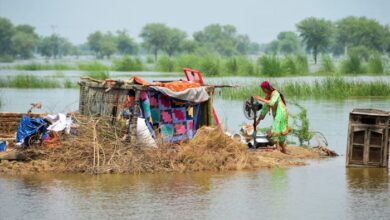ISLAMABAD: A meeting of the National Assembly’s Standing Committee on Climate Change was held today to discuss key issues, including climate change, flood threats, and the melting of glaciers across Pakistan.
The session was attended by committee members and officials from the National Disaster Management Authority (NDMA).
Committee member Sahibzada Sibghatullah expressed strong concerns about the effectiveness of the early warning system, saying, “The reality on the ground is that the early warning system that has been developed has proven ineffective.” He added that a bridge in his constituency was washed away during recent floods, yet no concrete steps have been taken to repair it. He stressed that disaster management is not solely a provincial issue and that the NDMA must also fulfill its responsibilities, especially when the situation becomes severe.
Responding to the concerns, the NDMA Chairman explained that while most disaster-related matters fall under provincial jurisdiction, the NDMA steps in when the situation escalates.
He emphasised the need to strengthen District Disaster Management Authorities (DDMAs), as their current capacity is limited.
The NDMA Chairman warned that poor sanitation in urban areas is contributing to urban flooding. He urged provincial governments to prevent human settlements along riverbanks and natural water flow paths.
During a briefing on glacier monitoring, NDMA officials informed the committee that the authority is keeping a close watch through the Global Glacier Monitoring Portal. They noted that the process of glacier melting has been ongoing for several years, which poses increasing risks of water scarcity and flooding in the future.
The NDMA Chairman highlighted that the agency is equipped with a modern control room, drones, and other advanced technologies capable of transporting up to 100 kilograms of supplies. He also noted that NDMA conducts emergency drills in collaboration with other agencies and shares all relevant information with provincial disaster authorities.
He further warned that Pakistan is rapidly losing its forest cover, which exacerbates climate-related threats. While the NDMA issues early warnings up to six months in advance, he stressed that without effective action at the ground level, these warnings cannot lead to meaningful results.
The meeting was also informed that more rainfall is forecasted in late July for Islamabad, Khyber Pakhtunkhwa, and Upper Punjab, and relevant institutions have been directed to remain on high alert.







